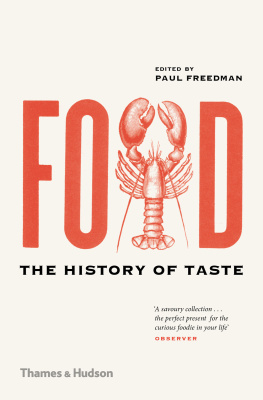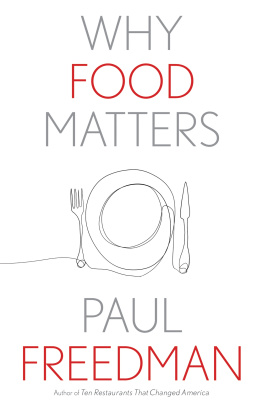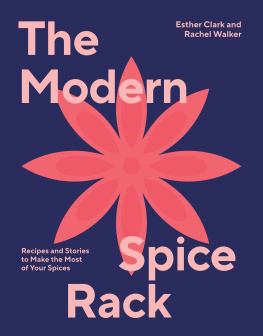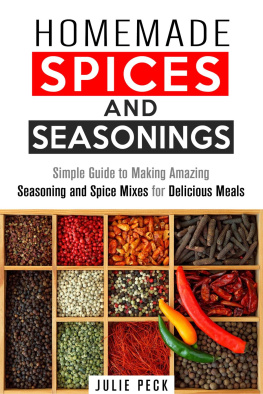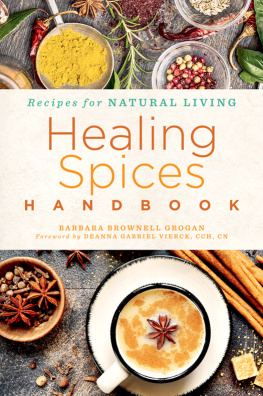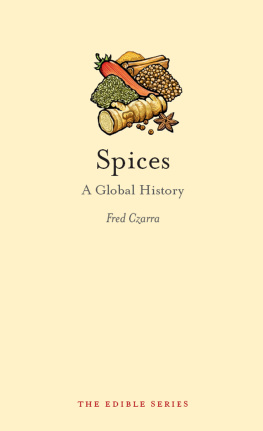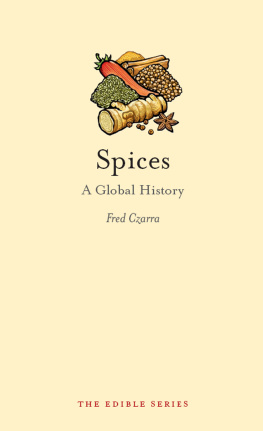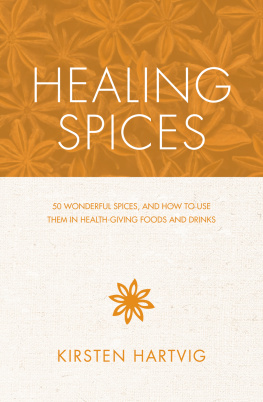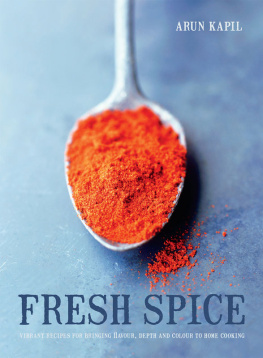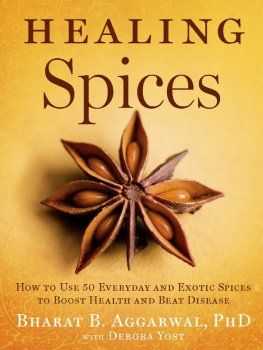Out of the East
Out of the East
SPICES AND THE MEDIEVAL IMAGINATION
Paul Freedman

Published with assistance from the Kingsley Trust Association
Publication Fund established by the Scroll and Key Society of
Yale College and from the Louis Stern Memorial Fund.
Epigraph in the Introduction quoted from Henry Hobhouse,
Seeds of Change: Five Plants That Transformed Mankind, copyright
1985, 1986, by Henry Hobhouse, reprinted by permission of
HarperCollins Publishers.
Copyright 2008 by Paul Freedman. All rights reserved.
This book may not be reproduced, in whole or in part, including
illustrations, in any form (beyond that copying permitted by
Sections 107 and 108 of the U.S. Copyright Law and except by
reviewers for the public press), without written permission
from the publishers.
Designed by Nancy Ovedovitz and set in Adobe Garamond
by Duke & Company, Devon, Pennsylvania. Printed in the
United States of America.
The Library of Congress has cataloged the hardcover edition
as follows:
Freedman, Paul H., 1949
Out of the East : spices and the medieval imagination /
Paul Freedman.
p. cm.
Includes bibliographical references and index.
ISBN 978-0-300-11199-6 (alk. paper)
1. SpicesHistoryTo 1500. 2. Spice tradeSocial aspects
HistoryTo 1500. 3. Food habitsHistoryTo 1500. 4. Trade
routesHistoryTo 1500. 5. EuropeTerritorial expansion
HistoryTo 1500. I. Title.
TX406F75 2008
641.3383dc22 2007036412
ISBN 978-0-300-15135-0 (pbk. : alk. paper)
A catalogue record for this book is available from the
British Library.
10 9 8 7 6 5 4 3 2 1
For Alexandre Gens &
Montserrat Orriols de Gens
Contents
Preface
Working on this book over several years, more than I care to enumerate, I have accumulated many debts to colleagues, friends, and institutions that it is my pleasant obligation to acknowledge here. For a long time I have wanted to write about the medieval European desire for spices, a result of a fascination with changing fashions for different sorts of luxury products. I tried to understand why spices became the focus not only of medieval culinary taste but of an imaginative worldview of the exotic and the fragrant. I began serious research during the academic year 20022003 while a fellow at the New York Public Librarys Dorothy and Lewis B. Cullman Center for Scholars and Writers. My time at the center was funded by the American Council of Learned Societies. I cannot adequately express my gratitude to the library and the ACLS for a marvelous year. I was helped in a great many ways by Peter Gay, the director of the Cullman Center at that time, and by Pamela Leo, the assistant director. I benefited from the friendship, knowledge, and encouragement of the other members of the Center that year and the staff of the library, especially Jeremy Treglown, Roger Keyes, and Amy Azzarito.
My research has also been supported by grants from Yale University, and I am grateful to many colleagues there who have read or listened to pieces of this book at different times. Id like to thank specifically Howard Bloch, Traugott Lawler, Stuart Schwartz, Joshua Burson, and Christiane Nockels Fabbri for their advice with regard to literary references, medical aspects, the Portuguese explorations, and many other topics. Azlina Jaboulet-Vercherre, a graduate student at Yale, helped me with the illustrations. I greatly appreciate the help of Agnieszka Rec, an undergraduate student at Yale, who read and corrected the manuscript.
I gave papers on various aspects of the history of spices at Vanderbilt concerning medieval perceptions of rarity and high price was published as an article in Speculum (October 2005) with the title Spices and Late-Medieval European Ideas of Scarcity and Value.
In the course of gathering information, including many odd bits of medical, gastronomic, and religious knowledge that make up so much of medieval thought about spices, John Friedman, emeritus professor at the University of Illinois, has aided me more than anyone. I am astonished by the depth and variety of his understanding of the Middle Ages, and touched by his willingness to help with requests for lore. I learned a considerable amount about the modern perfume and flavoring business from Robert Beller. He also afforded me the opportunity to appreciate ambergris, one of the most highly regarded medieval fragrances and medicines. Ive also received valuable help and advice from Susan Einbinder, Mark Burde, Eric Goldberg, Ilya Dines, Ellen Ketels, Kurt Weissen, Alain Touwaide, Michael McVaugh, Christopher Woolgar, Walton Orvil Schalick, III, Christine Reinle, and Christopher Dyer.
Lisa Adams of the Garamond Agency helped me immeasurably in conceiving and placing the manuscript, as well as editing and revising it. I am grateful to Lara Heimert and Chris Rogers, editors at Yale University Press, for their encouragement, enthusiasm, and patience.
I began to study the Middle Ages in the 1970s and chose a topic in the history of medieval Catalonia for my dissertation. This book is dedicated to my Catalan friends Alexandre and Montserrat of Malla. Their hospitality, affection, and joie de vivre supported and inspired me at the start of my career and have sustained me over the decades.
INTRODUCTION
Spices: A Global Commodity
The starting point for European expansion had nothing to do with the rise of any religion or the rise of capitalismbut it had a great deal to do with pepper.
Henry Hobhouse
Seeds of Change: Five Plants That Transformed Mankind
This book is about the demand, really the craving, for spices in Europe during the Middle Ages, from roughly A.D. 1000 until 1513, the year the Portuguese finished their exploration of the Moluccas, or Spice Islands, the source of nutmegs and cloves, in what is now eastern Indonesia. Through their research on the spice trade, historians have shown how the supply of spices was affected by price, warfare, and changes in trade routes. But there is less understanding about the demand side: why spices were so popular in the first place, why they were sufficiently sought after for traders to bring them to Europe from what seemed the farthest corners of the world. There was only the vaguest understanding of where India, the great spice source and entrept, was located and no knowledge at all until the fourteenth century about other lands where spices grew, such as Java, Sumatra, or the Moluccas, yet the desire of European consumers for spices was strong enough to draw precious aromatic commodities from distant and unknown places.
Much of their allure had to do with the use of spices to flavor a sophisticated cuisine. Medieval European food, or at least that enjoyed by the more economically comfortable classes, was perfumed with a great variety of spices. The recipe collections of the era provide evidence of a fashion for spicier food than Europe has ever enjoyed since the Middle Ages ended. The fierce demand for spices, however, was caused by needs beyond simply gastronomic preferences. Spices were considered unusually effective as medicines and disease preventives; they were burned as incense in religious rituals and distilled into perfumes and cosmetics. Prized as consumer goods by the affluent, spices were symbols of material comfort and social prominence. The medieval infatuation with spices, encouraged by their mysterious origins and high prices, stimulated attempts to find the lands where they originated and to take over control of their trade. The need for spices fueled the expansion of Europe at the dawn of the modern era.
Next page

